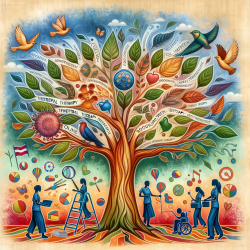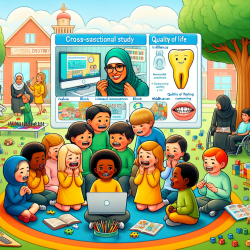The COVID-19 pandemic forced educators worldwide to adapt quickly to online teaching. In Shanghai, this transition was met with a unique set of challenges and opportunities for professional growth. A recent study titled "Teachers’ changes when addressing the challenges in unexpected migration to online mathematics teaching during the COVID-19 pandemic: a case study in Shanghai" provides valuable insights into how teachers navigated this new landscape using the Interconnected Model of Professional Growth (IMPG).
The Interconnected Model of Professional Growth (IMPG)
The IMPG framework, developed by Clarke and Hollingsworth (2002), offers a comprehensive view of teacher development through four interconnected domains: External Domain, Personal Domain, Domain of Practice, and Domain of Consequence. This model emphasizes the cyclical nature of learning through reflection and enactment, allowing teachers to adapt their practices based on feedback and personal insights.
Key Findings from the Shanghai Study
The study analyzed data from two teachers with varying levels of experience over two weeks of online teaching. Here are some key takeaways:
- Diverse Learning Paths: The experienced teacher leveraged student homework as a resource to understand learning difficulties, while the young teacher relied on external resources like online videos and peer discussions.
- Reflection and Enactment: Both teachers demonstrated changes in their Knowledge of Content and Teaching (KCT) through reflection on their practices and student interactions.
- Use of Technology: Teachers adapted technological tools to facilitate better student engagement and understanding, highlighting the importance of Technological Pedagogical Knowledge (TPK) in online environments.
Applying These Insights to Your Practice
If you're an educator navigating the complexities of online teaching, consider these strategies inspired by the Shanghai case study:
- Embrace Reflection: Regularly reflect on your teaching practices and student outcomes to identify areas for improvement.
- Cultivate a Learning Community: Engage with peers to share resources and strategies that enhance your teaching toolkit.
- Leverage Technology: Explore various digital tools that can support interactive and engaging learning experiences for your students.
The study underscores the complexity of teacher professional growth, influenced by external resources, personal experiences, and reflective practices. By understanding these dynamics, educators can better navigate the challenges of online teaching and foster meaningful learning experiences for their students.










